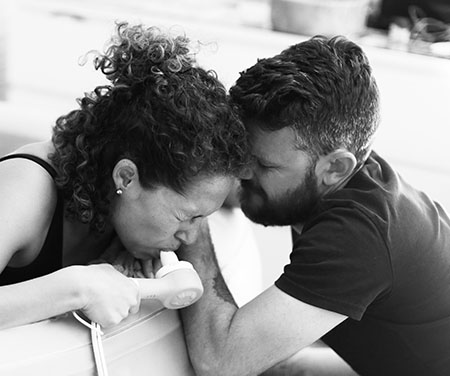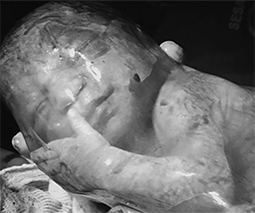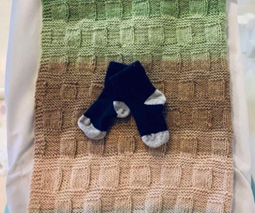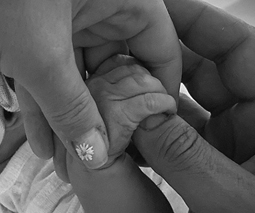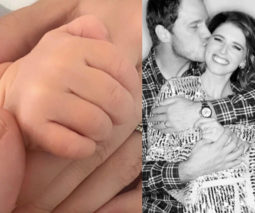Big bubbas! Everything to know about carrying and birthing a REALLY big baby
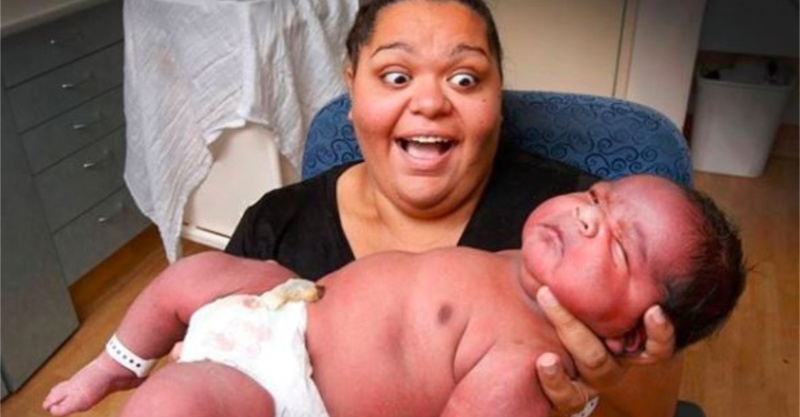
“How much did they weigh?!” Aside from asking whether it’s a boy or girl, it’s one of the first things that people want to know after you’ve given birth, and no doubt so do you! If you’re worried that you might be carrying a bigger baby, relax. Here’s everything you need to know.
How big is big?
So what defines a super big baby? Well, technically the term for a baby with a heavy birth-weight is foetal macrosomia or LGA (large for gestational age). Some experts consider this to be any baby born over 4kg, while others rate it a bit higher at anything over 4.5kg. In comparison, the average weight of a newborn is 3.4 kg but don’t worry because only around 2 percent of all babies born in the US and Australia are over 4.5kg at birth.
Large suspicions
You may feel like a beached whale during your pregnancy, but that doesn’t mean your baby is going to be a whopper. Your doctor takes measurements and might suspect that your baby is going to be bigger than average, but there’s no way to know for sure until you’ve given birth. And a lot of the time they end up being wrong. If you or the father are exceptionally tall or heavy, this doesn’t automatically guarantee your bub will be at birth.
Take a look at this little chubby guy!! Nearly 15 lbs and 2 feet in height at just a month old! Loyalty Adonis Grover…
Posted by Natalie Hee Fox 26 on Monday, 9 January 2017
Contributing factors
While genetics can sometimes play a part in the size of your bub, the most significant influential factor for true macrosomic babies is if the mother has diabetes – either pre-existing diabetes or gestational diabetes developed during the pregnancy. Women who are obese or gain a lot of weight during pregnancy or parents who are of a certain ethnicity (e.g. from the Pacific Islands) are also more likely to have bigger than average babies.
Read more about big babies:
- Mum births 14 pound baby, vows to never have any more kids
- New Zealand mum births baby weighing 7.4kg
- “I dreamed of a little, fat baby,” says mum of naturally delivered 6kg bub
Pregnancy care
If your doctor believes you’re carrying a large baby, they will conduct more check-ups and ultrasounds than usual and may suggest inducing you early or performing an elective caesarean. From a health perspective, there are no real dangers from carrying a large baby, apart from diabetes, which is the key concern and needs to be managed carefully.
Birthing big
Amazingly many women can deliver large babies vaginally with no issues at all, but there is an increased risk of vaginal and rectum tearing, haemorrhaging and pelvic floor issues or prolapse. Macrosomic babies also have broader shoulders which means they’re more at risk of shoulder dystocia – where the head emerges fine, but the shoulders become stuck.
Post delivery
If you do give birth to a macrosomic bub, you’ll probably need to ditch the newborn clothes and nappies and switch to ones designed for a three-month-old. On a more serious note though, bigger babies can potentially have health complications such as low blood sugar or a high blood count and may need to be taken to intensive care for a while to be monitored. Big bubs with diabetic mothers are also more likely to become obese and develop diabetes later in life, but many are also born perfectly safe and healthy.
Record breakers
According to the Guinness World Records, the largest baby ever born was a boy from the USA in 1879 who weighed a massive 9.98 kg (22 lb) and measured 71.12 cm (28 in). Admittedly both of his parents were almost 8 feet tall each (being giants in a travelling circus troupe) – but still! Sadly the baby died 11 hours after being born.
Other bubs to top the charts include a boy born in Italy in 1955 weighing an eye-watering 10.2 kg, a girl in Siberia in 2007 named Nadia who weighed 7.75 kg, another boy in Brazil in 2005 weighing 7.57 kg (delivered by c-section, we’re not surprised) and Stephen Lyttle from Australia who was born weighing 7.48 kg in 1963 (he’s in his fifties now and is average height, by the way).
Way to go mamas!
Did you give birth to a super big baby? Tell us your story on our Facebook page!
